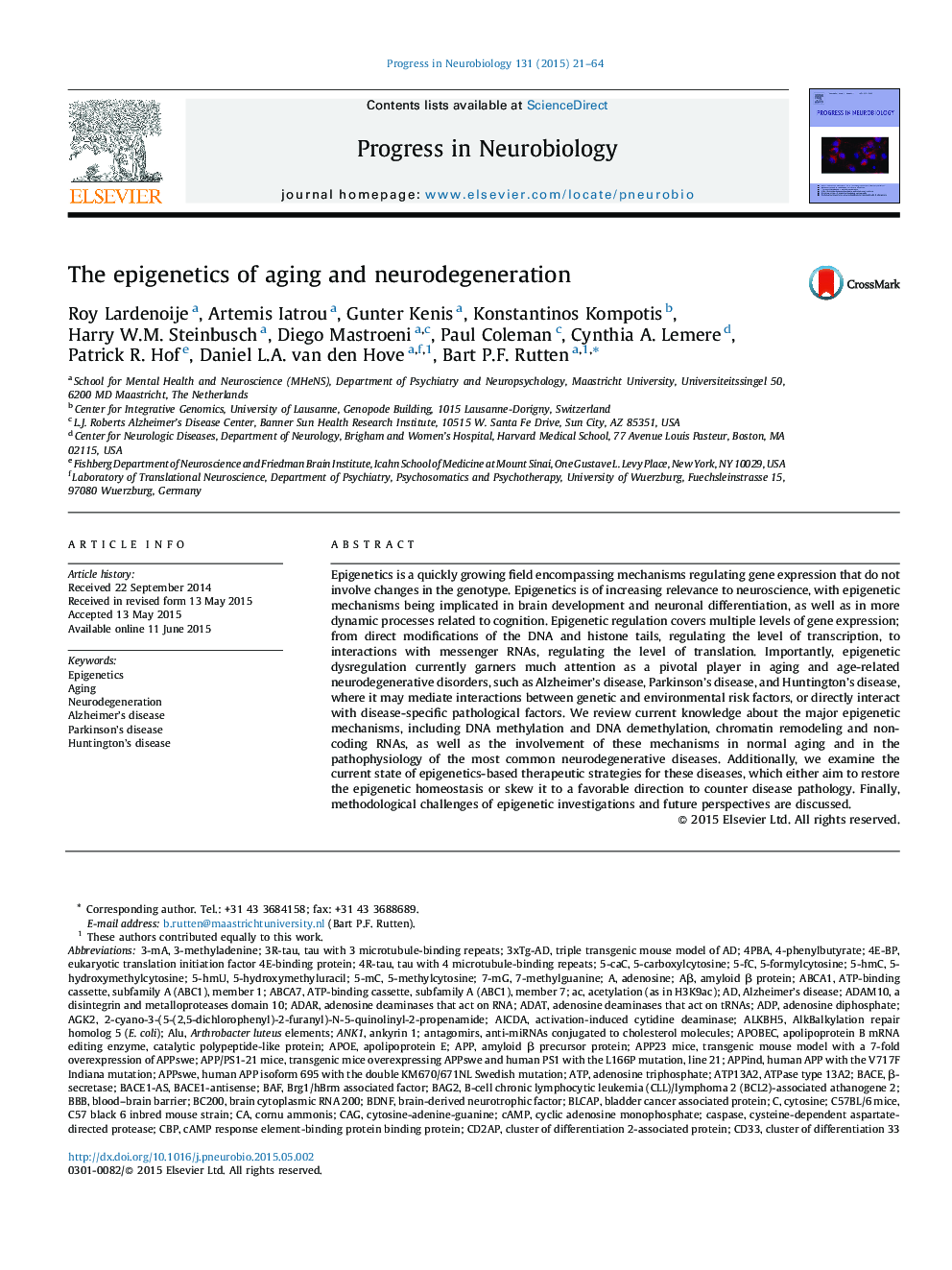| Article ID | Journal | Published Year | Pages | File Type |
|---|---|---|---|---|
| 4353265 | Progress in Neurobiology | 2015 | 44 Pages |
•Epigenetic regulation acts at transcriptional and post-transcriptional levels.•The natural aging process involves widespread epigenetic changes.•Many neurodegenerative diseases are associated with epigenetic dysregulation.•Their reversible nature makes epigenetic alterations promising therapeutic targets.•Methodological obstacles related to epigenetic and brain research are addressed.
Epigenetics is a quickly growing field encompassing mechanisms regulating gene expression that do not involve changes in the genotype. Epigenetics is of increasing relevance to neuroscience, with epigenetic mechanisms being implicated in brain development and neuronal differentiation, as well as in more dynamic processes related to cognition. Epigenetic regulation covers multiple levels of gene expression; from direct modifications of the DNA and histone tails, regulating the level of transcription, to interactions with messenger RNAs, regulating the level of translation. Importantly, epigenetic dysregulation currently garners much attention as a pivotal player in aging and age-related neurodegenerative disorders, such as Alzheimer's disease, Parkinson's disease, and Huntington's disease, where it may mediate interactions between genetic and environmental risk factors, or directly interact with disease-specific pathological factors. We review current knowledge about the major epigenetic mechanisms, including DNA methylation and DNA demethylation, chromatin remodeling and non-coding RNAs, as well as the involvement of these mechanisms in normal aging and in the pathophysiology of the most common neurodegenerative diseases. Additionally, we examine the current state of epigenetics-based therapeutic strategies for these diseases, which either aim to restore the epigenetic homeostasis or skew it to a favorable direction to counter disease pathology. Finally, methodological challenges of epigenetic investigations and future perspectives are discussed.
